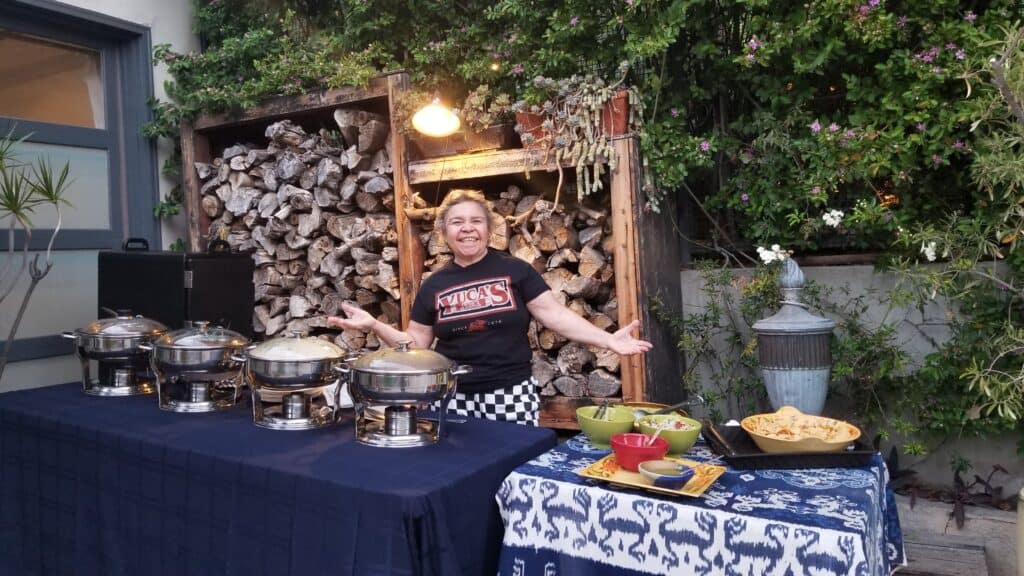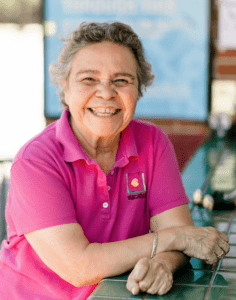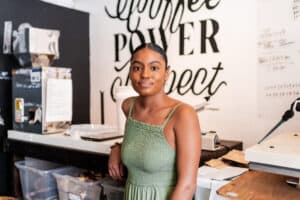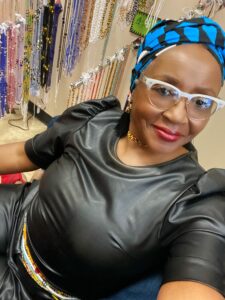Celebrating the Women Driving Small Business Success
Women are not a minority but an under-invested majority. This Women’s History Month, we’re highlighting women business owners who are inspiring future generations of aspiring entrepreneurs.

Women own 42% of all businesses in the U.S., yet continue to face challenges in accessing capital to scale their businesses. Women receive only 2.3% of all venture capital funding.
This appalling disparity is even greater for women of color: “Four million new jobs and $981 billion in revenue would be added if average revenue of minority women-owned firms matched that of white women-owned businesses.” Even in 2020, when COVID shuttered businesses across the country, women of color started nearly half of new women-owned businesses. Can you imagine how far our economy will soar when we reach financial equity?
You don’t have to stretch your imagination far; just listen to the stories of women entrepreneurs and how their small businesses are making an impact. At Accion Opportunity Fund, we’re part of the solution to financial inequities. Women make up 46% of small business owners who access Accion Opportunity Fund’s¹ working capital (our loans that exclude trucking or mobile food financing).
Meet Dora, Cortney, and Ethea, whose businesses serve as bridges to family, community, and culture.
For Dora, small business means family
 Dora is at the helm of Yuca’s Restaurants, a Los Angeles Mexican food staple her parents started in an 8-foot-by 10-foot converted shoeshine stand. She runs Yuca’s alongside her mother, Socorro, and sister, Margarita, who have worked together to establish the business as a mainstay in Los Feliz and Pasadena. Some of their employees have worked at Yuca’s for more than four decades, and regular customers come to eat, swap stories, and build community.
Dora is at the helm of Yuca’s Restaurants, a Los Angeles Mexican food staple her parents started in an 8-foot-by 10-foot converted shoeshine stand. She runs Yuca’s alongside her mother, Socorro, and sister, Margarita, who have worked together to establish the business as a mainstay in Los Feliz and Pasadena. Some of their employees have worked at Yuca’s for more than four decades, and regular customers come to eat, swap stories, and build community.
“My mom is my best friend,” Dora said. “She’s funny, she’s witty, she’s smart and she likes to do things and try new things. It’s a pleasure working with her and everyone loves her. Going to work was literally like having a social hour for eight hours. People would come and bring new partners, new babies, and or shared if they were thinking of having a baby—people were constantly sharing.”
The business changed drastically during the pandemic. Socorro stopped working at the restaurants to protect her health, even before the official quarantine began. Business dropped with office closures, and Dora pivoted from being a networking social butterfly to staying home and frantically searching online for grants or resources to keep the business afloat.
Dora found Accion Opportunity Fund through a local Latino Restaurant Association. In 2021, she joined a cohort of other entrepreneurs from the restaurant industry in the Main Street Strong Accelerator, a unique program sponsored by AOF and DoorDash that provides $20,000 grants and access to an eight-week hands-on business curriculum to spur entrepreneurs’ COVID recovery.
“It’s wonderful that groups like AOF think about small businesses and ways to help us survive …And I think that’s what makes pandemics like this survivable, is that you know that there are people who are out there who care.” -Dora
For Cortney, small business means cultivating community
 Financial equity doesn’t just mean providing affordable capital, it also means connecting entrepreneurs with coaching and mentoring to fuel their success. Cortney turned to Accion Opportunity Fund’s business coaching to help achieve her dream of opening a coffee shop that would build community and celebrate Black culture.
Financial equity doesn’t just mean providing affordable capital, it also means connecting entrepreneurs with coaching and mentoring to fuel their success. Cortney turned to Accion Opportunity Fund’s business coaching to help achieve her dream of opening a coffee shop that would build community and celebrate Black culture.
When Cortney first stepped into a popular Black-owned coffee shop in Chicago, she felt like she had found her sanctuary. “When I walked in, I was just like, ‘whoa, this is different,’” she said. “It just felt so warm. They had Nipsey Hussle playing and there was Black art…and the majority of the people there were Black or African American. They looked like me and I had never experienced that before.”
“I’m a very spiritual, religious person,” Cortney said. “I’m a Christian. And I felt like God was like, ‘take out your notepad and start writing. I’m gonna give you an idea.’ And so I just started writing and then that’s kind of how Rise Koffee + Kulture came about. I just started writing about this coffee shop, this idea, just different things that I wanted to do in the community and bring back to Tampa, my home.”
As she was in the planning stages for her business, Cortney struggled to obtain capital as a first-time entrepreneur.
“One of the biggest challenges with starting a new business has just been trying to obtain the necessary capital to really get started,” she said. “When I first started Rise, I was just naive. I had no business experience. I thought I was going to launch this business on social media and within a few months get the funding that I needed to start the coffee shop and get the brick-and-mortar space. But I learned really fast that it would not be that easy, and I’m still learning.”
Cortney applied for a FedEx small business grant contest that provided a connection with Accion Opportunity Fund’s Director of Business Advising, Luis Ramos. She worked with Luis for free one-on-one coaching to help her identify potential funding opportunities for equipment and to help with business planning.
Luis helped Cortney shape the idea for a mobile coffee bar and community space, which is set to launch in Tampa, Florida in 2022. Cortney will offer espresso-based drinks made from locally-roasted coffee, along with African coffees, Asian-inspired beverages, small bites, and merchandise.
She also plans to create a paid fellowship program to train and employ young adults with intellectual disabilities, providing them with valuable skills such as social media management, barista training, and event planning. The program, which will be called “The Rose that Grew,” is inspired in part by Tupac Shakur, a rapper, poet, and activist, who also served as an influence for Rise’s other branding.
“(Young adults) will have the opportunity to learn employability skills and get paid while doing it,” Cortney said. “That way they can take those skills and go on and find full or long-term employment, things like that to help them live a more full, healthy life.”
“One of the biggest impacts that I hope to have is just having motivation and inspiring other people to do the same,” she said. “So really seeing that you can create what you want out of life, whether that be a business or a career, whatever it may be, and that you can do it if you stick to it. That’s a big thing for me—inspiring other people.”
For Ethea, small business means connecting with her culture
 Ethea was drawn to the exquisite Ghanaian beads at her brother’s art gallery. She began wearing them and ultimately, started her own business selling waistbeads in Texas—a business that she expanded during the COVID-19 pandemic.
Ethea was drawn to the exquisite Ghanaian beads at her brother’s art gallery. She began wearing them and ultimately, started her own business selling waistbeads in Texas—a business that she expanded during the COVID-19 pandemic.
Ethea turned to entrepreneurship full-time after getting laid off from her government job in San Francisco in 2010. She realized that if she created her own business, she would never lay herself off. More than ten years later, Ethea now runs two brick-and-mortar stores and two online stores. The business continues to be a family affair, with Ethea’s Ghanian sister-in-law helping source the glass beads directly from local artists.
Ethea’s clients come to her not only for beads themselves, but the beading experience. “We don’t always feel so confident about our bellies or our bodies…once we get past the awkwardness of so-called ‘body flaws,’ I share historical information about the origin of waistbeads, what colors mean, and then the serious shopping begins. I burn scents; I make sure we have good music to get into our comfort zone, and the conversations are awesome.
“I’m very knowledgeable about these beads. It’s a whole learning experience. Though I found out about the beads over 11 years ago and my client may have found out about them just 11 minutes ago, I’m still learning about the culture along with my clients.”
“As a business owner, my proudest moment is when women bring their young daughters to me for waistbeads. As people of the African diaspora, so much of our culture and so many of our traditions have been stripped from us. These glass beads connect us to our ancestry and to Africa’s best kept secret: glass beads.” – Ethea
Six months after starting her business, Ethea started her online store to “make money while [she] slept.” Initially, it was tedious to photograph the bead strands, but with COVID, she’s thankful she set up an online store.
Ethea has locations on both the Northside and Southside of Houston. During the middle of the pandemic, Ethea opened a new business, Wrapped and Waisted, that specializes in headwraps. She found Accion Opportunity Fund through SOAR, the Southern Opportunity And Resilience Fund, which provides Southern entrepreneurs and nonprofits with flexible, affordable capital and free business support services to rebuild from COVID. Ethea took out a loan from Accion Opportunity Fund’s lending arm, Accion Opportunity Fund Community Development, to purchase inventory, pay rent, and make payroll for the second store.
“Every week, somebody who is curious about the culture of wearing waistbeads is coming through that door,” Ethea shares. “That’s grace and mercy.”
Building connections through entrepreneurship
For Dora, Cortney, and Ethea—and millions of other women—entrepreneurship means more than a paycheck: it’s a connection to family, culture, and community. Accion Opportunity Fund is honored to support women entrepreneurs with small business loans and business advising. If you’re looking for support to take your business to the next level, or know a small business owner who is, explore Accion Opportunity Fund’s loans and free business resources.